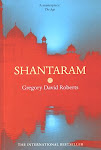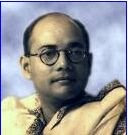Beyond Kasab guilty verdict, Mumbai attacks reshape Indian law
The guilty verdict announced Monday for Pakistani gunman Mohammed Ajmal Amir Kasab closed one chapter of the 2008 Mumbai attacks. But the impact on counterterrorism policy is still slowly unfolding.
A year and a half after 10 men with AK-47s debarked on India’s commercial capital and launched a rampage that killed 166 people, the trial of the lone surviving gunman is all but over.On Monday, a judge in a high-security Mumbai court pronounced Mohammed Ajmal Amir Kasab guilty of murder and waging war against India. He will deliver the sentence in 10 days, after which the defendant can appeal.
The verdict brings closure to one of the worst terror attacks in Mumbai's history.
But the impact of the attack on India's counterterrorism policy has barely begun to be felt.
The 2008 attack on Mumbai triggered a shift in Indian antiterrorism law, inducing the government to bring back some of the harsh post-9/11 measures it had repealed just four years earlier.
Kasab is among the first to be tried under an altered legal framework, one that reflects a worldwide struggle to reconcile national security with human rights after the 9/11 attacks.
“Following [former President George W.] Bush's example, many countries implemented harsh antiterror laws,” says Colin Gonsalves, a New Delhi-based civil rights lawyer. “But many regret passing those laws now, because of the setback they represent for a democratic state.”
Most countries passed or amended their laws after 9/11 to comply with a United Nations Security Council resolution that called on members to implement counterterrorism measures, criminalize terrorism, and share intelligence. Many of these new laws undermine human rights norms, the International Commission of Jurists said last year.
Both the United States and Britain, for instance, have since 2001 expanded the government’s powers of surveillance and preventative detention, broadened definitions of terrorism-related offences, and made sentences harsher. The US authorized military tribunals that curtail defendant rights. More recently, Russia passed a law allowing terrorism trials to proceed without a jury, says Kim Lane Scheppele, director of the Program in Law and Public Affairs at Princeton University's Woodrow Wilson School of Public and International Affairs.
“Few states have seen their constitutional sensibilities remain intact in the panic over terrorism,” Ms. Scheppele said by e-mail.
Rights vs. security
Though India's legal system enshrines due process and judicial review, some of its antiterror laws rank among the harshest for a constitutional democracy. It permits, for instance, one of the longest periods of pre-charge detention
Indian security laws are a legacy of British colonialism – the Indian Penal Code under which Kasab is charged with waging war predates its 1947 independence. But it has a more recent record of using antiterrorism laws to intimidate political or popular opposition that makes these measures especially controversial.
vpost : 05












